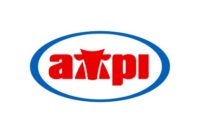Private label and foodservice accounts need dairy processors

Byrne Dairy, Syracuse, N.Y., does a robust co-packing business. Photo courtesy of Byrne Dairy
Dairy processors can see their future in this one statistic: 97% of millennials are likely to buy store brands. Someone has to manufacture those brands. It might as well be your company. When Dairy Foods surveyed its readers in 2016, it found that 40% do provide contract manufacturing services.
In PMMI’s 2017 “Trends in Food Processing Report,” the packaging association cited a Mintel study reporting that half of the millennial generation perceives store brand as more innovative. That should spur any dairy’s marketing team to punch up its brand messaging.
But back to manufacturing. Berner Food & Beverage, Dakota, Ill., is a processor of shelf-stable beverages, aerosol cheeses and dips. It approaches the business from two perspectives. One is as a contract manufacturer; it makes a product according to a customer’s formula. Berner also takes a private label approach in which its R&D team develops a formula and format for a customer, often a store brand. The company has sales representatives for each segment.
Berner also makes control brands (Dakota for beverages and dips, and Party Cheese for aerosol cheese) that retailers can stock on their shelves.
Business has been so strong recently that the company this year is tripling the size of its manufacturing space to 290,000 square feet, said Todd Mullane, the VP for the private label business. In addition to the physical plant expansion, “we’re broadening our bandwidth and skillsets,” said Alan Davis, the SVP for contract manufacturing.
Berner uses the retort process to manufacture beverages and cheeses. It fills 9.5-ounce and 13.7-ounce glass bottles and 6-ounce, 8-ounce, 11-ounce and 15-ounce metal cans for beverages, while dips are housed in 15-ounce, 15.5-ounce, 16-ounce, and 23-ounce jars and aerosol products in 8-ounce cans. Because of the retort process (essentially a giant water bath heated up to exceed the boiling point), latte beverages and dips can have a higher dairy content than similar drinks filled aseptically in PET bottles, Mullane said. Beverages and dips are shelf-stable at ambient temperatures for up to a year; the aerosol cheeses and hot-fill cheeses in jars are stable for nine months.
Mullane called beverages a “huge” opportunity for the company, thanks to Starbucks which created the market for dairy-based coffee beverages. Private label clients are following the leader by developing their own lattes. Mullane described what he called the “natural progression” in the beverage segment: first private label customers create lattes, then coffee/energy beverage and eventually cold-brew coffees. He added that dairy-based tea beverages are “trending” with customers.
Nuestro Queso, Rosemont, Ill., knows the co-packer/customer relationship from both sides. As the company has grown, Nuestro Queso has evolved from a Hispanic cheese brand owner to a top co-packer of Hispanic cheeses.
The foundation to a good customer/supplier relationship is built with product quality, service and innovation, said Marketing Director Arturo Nava. “Delivering great product is No. 1,” Nava said.
Nuestro Queso manufactures a wide range of authentic Mexican, Caribbean and Central American style cheeses and creams that appeal to U.S. Hispanic consumers of Mexican, Central American and Caribbean ancestry as well as to mainstream consumers.
Service encompasses on-time delivery, filling orders completely and being flexible when it comes to requests for different formats, Nava said.
As for innovation, “we try to come up with the next new product. We listen. Sometimes innovation can come out of conversations” with customers, Nava said. One example is a crumbled cheese packaged in a more convenient format.
Nuestro Queso’s cheese manufacturing facility in Kent, Ill., is SQF Level 2 certified, and management is aiming for Level 3 in 2018. The improvement is due to the cheesemaker’s own expectations for quality and food safety and that of its customers.
One concern dairy processors might have about manufacturing private label products is that they are creating competition for their own brands. Nava said he doesn’t see it that way.
“A private label product validates the category,” he said. A supermarket buyer would not invest in a private label product unless there was confidence that the category would do well.
The lower prices of store brands also bring in new customers, thus expanding the market. These customers might eventually trade up to a branded product.
Manufacturing for foodservice
KanPak U.S., Wichita, Kan., has found opportunities in the foodservice channel, where customers include Whataburger, Chick-fil-A, Tim Hortons, 7-Eleven, Wawa and Speedway.
A division of Golden State Foods, KanPak U.S. uses aseptic processing technology in its Grade A dairy manufacturing plants in Arkansas City, Kansas, and Penn Yan, N.Y. The company produces a variety of dairy and coffee-based products such as iced and cold brew coffee, ice cream, yogurt and frozen dessert products, milk shake bases, packaged milk and creamers and specialty beverages.
“We take dairy out of the cold chain,” said Byron Georgeff, a member of KanPak’s marketing team. KanPak offers a variety of packaging formats, including form-fill-seal pouches (in half-gallon/2-liter volumes), bottles (various sizes) and bag-in-box (1 to 10 gallons).
As restaurants expand geographically, they might seek to consolidate their suppliers instead of relying on multiple regional dairies. For example, KanPak can produce all the ice cream mix for a customer from one plant. The packages can be stored at ambient temperatures for up to six months. Besides reducing the need for refrigerated storage, a customer does not need deliveries as frequently.
Manufacturers can provide far more than processing. They can purchase ingredients and packaging materials, for example. Some manufacturers, Berner included, can design product labels and secure favorable freight rates for customers.
Building relationships
Communication is the foundation of a good contract manufacturing relationship between the processor and the brand, according to the manufacturers Dairy Foods spoke with. Straight-forward communication early on in the process is important to establish a good relationship between the manufacturer and the customer. That includes discussions about prices and expectations so that the product can be made to satisfy the customer.
“Open, timely and accurate communication between all integral functional teams on both sides of the business relationship” is important, Georgeff said.
“What makes for a good relationship is someone who wants to be creative and work with you to develop the best possible product at a price both sides can live with,” Mullane said.
Davis added that the components of a good relationship include “seamless manufacturing capabilities, technologies and skill sets. It is what national customers seek, and that’s what Berner is offering.”
The retail landscape is changing, as specialty and convenience stores take sales from traditional supermarkets. These new stores want to develop private label brands. And as consumers continue to dine out, dairy processors can tap the foodservice channel. Contract or private label manufacturing can keep a dairy processor’s plant humming.
Looking for a reprint of this article?
From high-res PDFs to custom plaques, order your copy today!





